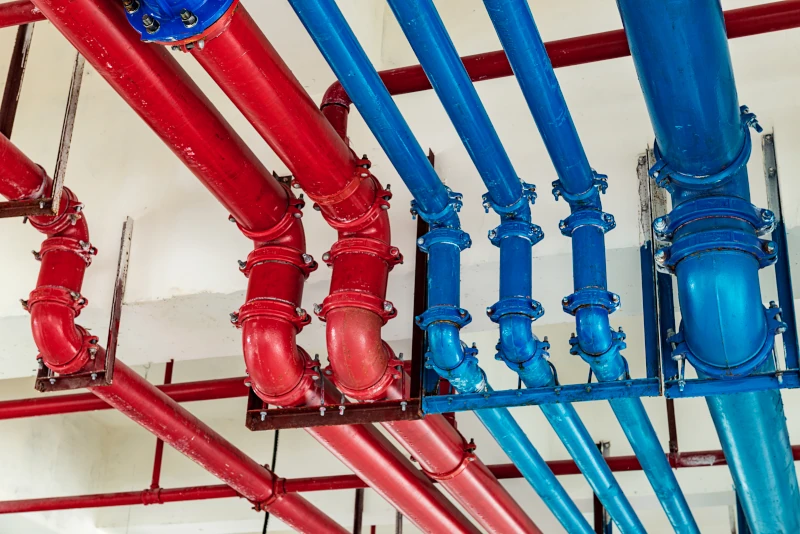
When it comes to plumbing, many people often think of the pipes and fixtures in their homes. However, plumbing is a vast field that encompasses various types of systems and services. Two primary categories of plumbing are commercial and residential plumbing. Understanding the differences between these two types can help you make informed decisions when hiring a plumber or planning a plumbing project. In this blog post, we’ll explore the distinctions between commercial and residential plumbing, including their systems, regulations, and the expertise required for each.
Commercial plumbing refers to the plumbing systems found in business environments such as offices, restaurants, schools, hospitals, and other large facilities. These systems are typically more complex than residential ones due to the larger scale of operations and higher demand for water usage.
Commercial buildings often require more intricate plumbing systems that can handle higher volumes of water flow and drainage. This includes multiple bathrooms, kitchens, and sometimes industrial-grade appliances.
A commercial plumber must be familiar with specialized equipment like grease traps for restaurants or backflow prevention devices for health facilities.
The standards for commercial plumbing are typically stricter due to health regulations and safety concerns. This means that commercial plumbers must be well-versed in local codes and compliance requirements.
Many businesses opt for ongoing maintenance contracts with commercial plumbers to ensure that their systems remain operational without interruption.
Residential plumbing deals with the systems found in private homes or apartments. While residential plumbing can also be complex depending on the size of the home, it generally involves fewer fixtures than a commercial system.
Most residential properties have simpler plumbing layouts compared to commercial buildings. They usually consist of basic fixtures like sinks, toilets, showers, and washing machines.
Residential plumbers work with standard equipment such as water heaters, faucets, and basic drainage systems designed for lower water usage compared to commercial setups.
While there are still building codes that must be followed in residential settings, they tend to be less stringent than those governing commercial properties.
Homeowners often require emergency services for issues like burst pipes or clogged drains; thus residential plumbers frequently offer 24/7 service options.
The training required for commercial plumbers differs significantly from that needed for residential plumbers:
Commercial Plumber Training
Residential Plumber Training
When hiring a plumber—whether residential or commercial—cost is always an important factor:
Commercial Plumbing Costs
Commercial plumbing services tend to be more expensive due to:
Residential Plumbing Costs
Residential services are generally more affordable but can still vary based on:
Understanding the differences between commercial and residential plumbing is crucial whether you’re a homeowner looking to fix a leaky faucet or a business owner needing routine maintenance on your complex system. Each type requires specific expertise tailored toward its unique demands—commercial plumbers focus on large-scale operations while residential plumbers specialize in home-based needs.
If you find yourself needing assistance with either type of system—be it an emergency repair at home or regular maintenance at your business—it’s essential to hire qualified professionals who understand these distinctions well. For businesses especially, investing in a reputable commercial plumber ensures compliance with regulations while maintaining efficient operations within your facility’s infrastructure.
In summary, knowing what sets apart these two branches of plumbing will not only help you choose the right professional but also give you peace of mind knowing your property’s plumbing needs are being met effectively!

James CRAFT & Son, Inc. stands as the premier Plumbing, HVAC, and Service contractor in the region, boasting a legacy of over 100 years of exceptional craftsmanship. As a family-owned and operated business, CRAFT has consistently delivered top-quality services to its valued customers.
With a dedicated team of full-time professionals and a fleet of distinctive red Ford trucks, CRAFT efficiently meets the needs of commercial, industrial, and institutional clients. Their extensive service area spans south-central Pennsylvania, northern Maryland, West Virginia, Virginia, and Delaware.
Our newsletter is distributed quarterly by USPS mail free of charge. If you’d like to receive our Newsletter, please complete the form below.
"*" indicates required fields